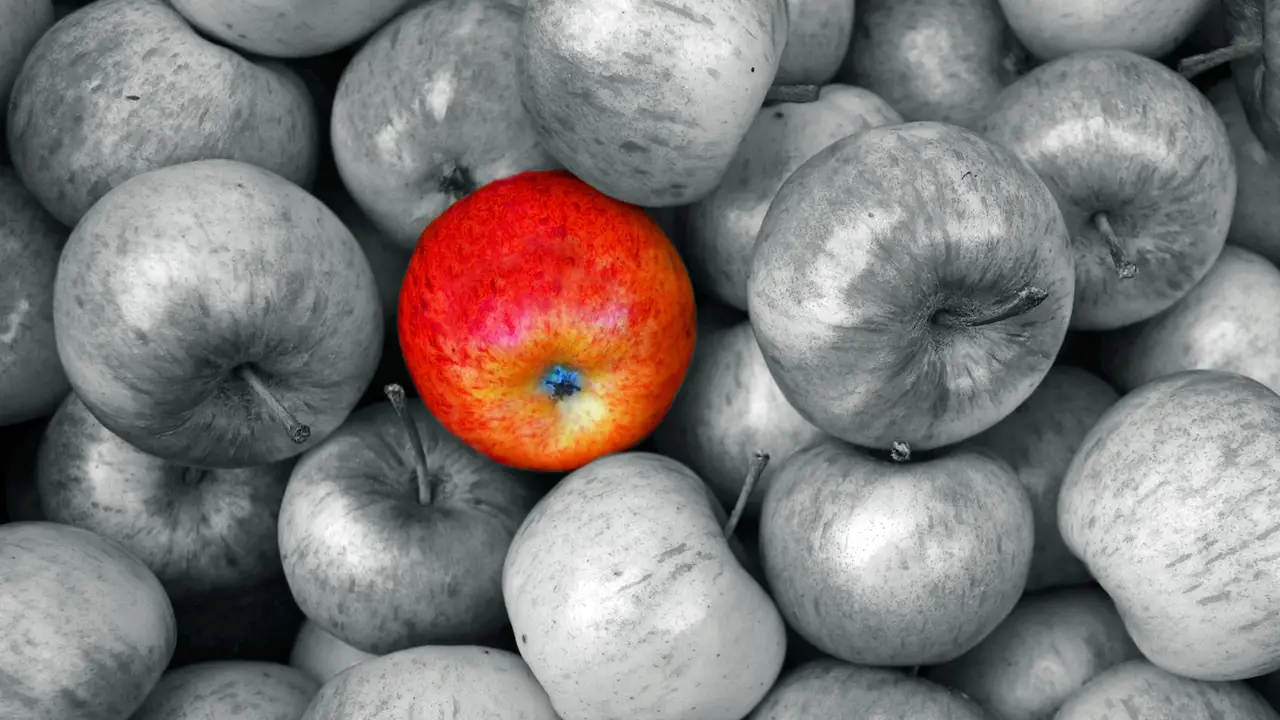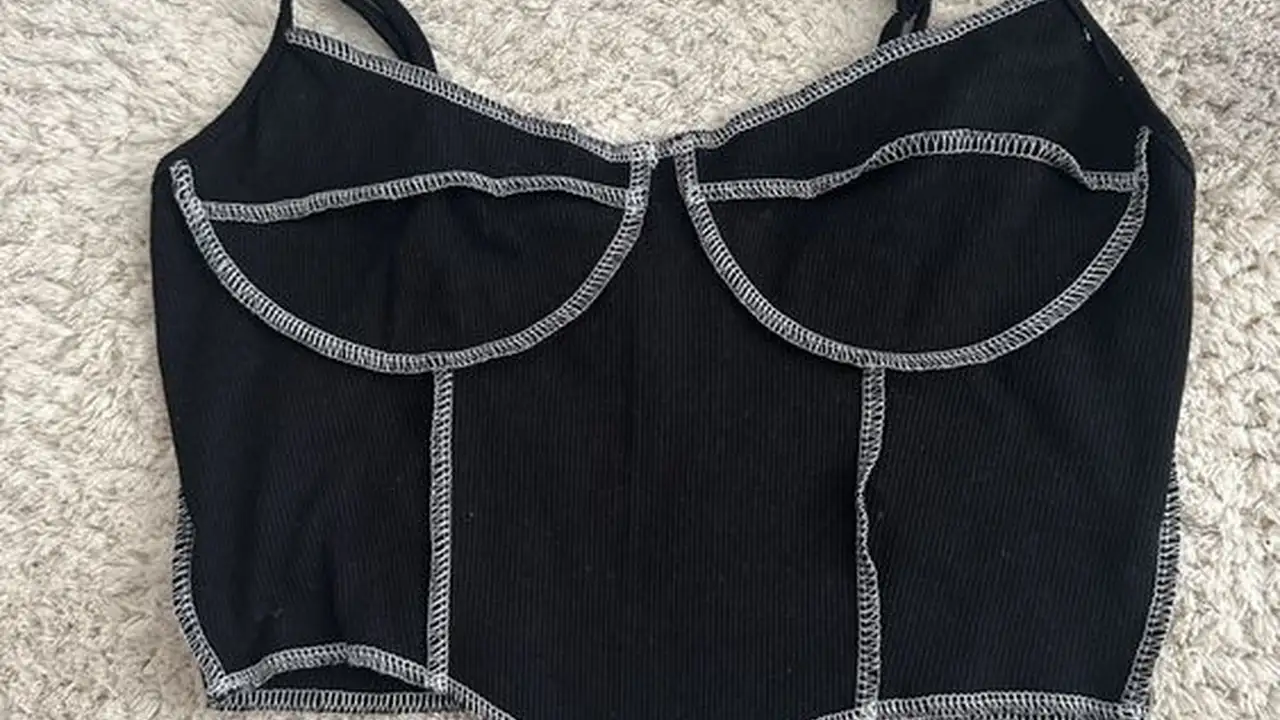Apple Watch vs Samsung Galaxy Watch Which is Better
A comprehensive comparison between Apple Watch and Samsung Galaxy Watch. Find out which smartwatch ecosystem suits your needs best.

Apple Watch vs Samsung Galaxy Watch The Ultimate Smartwatch Showdown
Welcome to the ultimate smartwatch showdown! If you're in the market for a new wearable, chances are you've narrowed it down to two of the biggest players: the Apple Watch and the Samsung Galaxy Watch. Both offer a compelling blend of fitness tracking, communication, and convenience right on your wrist. But which one is truly better for you? This in-depth guide will break down every aspect, from design and display to health features, battery life, and ecosystem compatibility, helping you make an informed decision. We'll dive deep into specific models, their ideal use cases, and even give you a peek at their price tags.
Design and Display Apple Watch vs Galaxy Watch Aesthetics and Screen Quality
When it comes to smartwatches, aesthetics matter. You're going to be wearing this device every day, so it needs to look good and feel comfortable. Both Apple and Samsung have distinct design philosophies.
Apple Watch Design Iconic Square and Premium Build
The Apple Watch has maintained its signature rounded-square design since its inception. It's instantly recognizable and has become an icon in the wearable space. Apple offers a variety of materials, including aluminum, stainless steel, and even titanium for the Ultra models, giving users plenty of premium options. The latest models, like the Apple Watch Series 9 and Apple Watch Ultra 2, feature edge-to-edge displays that curve slightly into the chassis, creating a seamless look. The Digital Crown and side button provide tactile controls that are intuitive and easy to use.
Specific Models and Design Notes:
- Apple Watch SE (2nd Gen): Aluminum case, more budget-friendly, retains the classic Apple Watch look.
- Apple Watch Series 9: Aluminum or stainless steel, brighter display, refined design.
- Apple Watch Ultra 2: Titanium case, larger and more rugged, flat display, prominent Action Button.
Samsung Galaxy Watch Design Classic Round and Customizable
Samsung's Galaxy Watch line, on the other hand, has largely stuck to a traditional circular watch face, appealing to those who prefer a more classic timepiece look. Samsung also offers various materials, including aluminum and stainless steel. The Galaxy Watch Classic models often feature a physical rotating bezel, which is a fan-favorite for navigation, offering a satisfying click and tactile feedback. The standard Galaxy Watch models typically use a digital bezel.
Specific Models and Design Notes:
- Samsung Galaxy Watch 6: Aluminum case, sleek and modern, digital bezel.
- Samsung Galaxy Watch 6 Classic: Stainless steel case, physical rotating bezel, more traditional watch aesthetic.
- Samsung Galaxy Watch 5 Pro: Titanium case, rugged design, larger battery, aimed at outdoor enthusiasts.
Display Technology and Brightness AMOLED vs OLED
Both brands utilize high-quality display technology. Apple uses an OLED Retina display, known for its vibrant colors, deep blacks, and excellent contrast. The latest Series 9 boasts up to 2000 nits of peak brightness, making it incredibly legible even in direct sunlight. The Ultra 2 pushes this even further to 3000 nits.
Samsung employs Super AMOLED displays, which offer similar benefits: rich colors, true blacks, and great viewing angles. The Galaxy Watch 6 series also offers impressive brightness, ensuring good visibility outdoors. Both also feature always-on display (AOD) capabilities, allowing you to glance at the time and notifications without raising your wrist.
Ecosystem Compatibility Apple iOS vs Android Integration
This is arguably the most critical factor in your decision. The Apple Watch is exclusively designed for iPhone users, while the Samsung Galaxy Watch is primarily for Android users, though it has limited compatibility with iOS (with significant feature limitations).
Apple Watch Seamless iPhone Integration
If you own an iPhone, the Apple Watch offers an unparalleled level of integration. Setup is a breeze, notifications sync perfectly, and features like Handoff, unlocking your Mac, and seamless AirPods connectivity make it feel like a natural extension of your phone. Apple Pay works flawlessly, and the App Store for watchOS is vast, offering a wide array of applications optimized for the small screen. Family Setup also allows you to set up an Apple Watch for a family member who doesn't have an iPhone, which is a unique advantage.
Samsung Galaxy Watch Android Flexibility and Wear OS
The Samsung Galaxy Watch series, particularly since the Galaxy Watch 4, runs on Wear OS Powered by Samsung, a collaborative effort between Google and Samsung. This means it offers deep integration with Android phones, especially Samsung Galaxy devices. You get access to Google services like Google Maps, Google Assistant, and Google Wallet (formerly Google Pay). The Google Play Store for Wear OS provides a robust selection of apps. While it works best with Samsung phones, it's generally compatible with most Android smartphones running Android 8.0 or later with at least 1.5GB of RAM. However, some Samsung-specific features like ECG and blood pressure monitoring might require a Samsung phone.
Health and Fitness Tracking Advanced Sensors and Insights
Both smartwatches are powerhouses when it comes to health and fitness tracking, offering a comprehensive suite of sensors and features to monitor your well-being.
Apple Watch Health Features Comprehensive and FDA Cleared
Apple has consistently pushed the boundaries in health tracking. The Apple Watch Series 9 and Ultra 2 include:
- Heart Rate Monitoring: Continuous tracking, high/low heart rate notifications, irregular rhythm notifications (AFib).
- ECG (Electrocardiogram): On-demand ECG readings to detect signs of AFib. (FDA cleared in the US).
- Blood Oxygen (SpO2): Measure your blood oxygen saturation levels.
- Temperature Sensing: Primarily for retrospective ovulation estimates and sleep tracking insights.
- Sleep Tracking: Detailed sleep stages (REM, Core, Deep) and sleep duration.
- Fall Detection: Automatically calls emergency services if a hard fall is detected and you're unresponsive.
- Crash Detection: Detects severe car crashes and automatically connects you to emergency services.
- Cycle Tracking: With retrospective ovulation estimates using temperature data.
- Medication Reminders: Helps you stay on track with your medication schedule.
Samsung Galaxy Watch Health Features Robust and Innovative
Samsung's Galaxy Watch series also offers an impressive array of health features:
- Heart Rate Monitoring: Continuous tracking, high/low heart rate alerts.
- ECG (Electrocardiogram): On-demand ECG readings for AFib detection. (Requires Samsung phone for full functionality in some regions).
- Blood Pressure Monitoring: Unique to Samsung, requires calibration with a traditional cuff. (Availability varies by region and requires Samsung phone).
- Body Composition Analysis (BIA): Measures body fat, skeletal muscle, body water, and BMI.
- Skin Temperature Sensor: Used for advanced sleep tracking and cycle tracking.
- Sleep Tracking: Detailed sleep stages, snore detection, and personalized sleep coaching.
- Fall Detection: Similar to Apple, can alert emergency contacts.
- Blood Oxygen (SpO2): Measures blood oxygen levels.
Fitness Tracking Workouts and Activity Monitoring
Both watches excel at fitness tracking. They automatically detect many common workouts, track steps, calories burned, and active minutes. They offer a wide variety of workout modes, from running and cycling to swimming and yoga.
Apple Watch Fitness: Focuses on closing Activity Rings (Move, Exercise, Stand), intuitive workout app, robust third-party app support (e.g., Strava, Peloton). The Ultra models offer advanced GPS for precise outdoor tracking and specialized metrics for endurance athletes.
Samsung Galaxy Watch Fitness: Utilizes Samsung Health for comprehensive data tracking. Offers advanced running metrics, custom workout routines, and body composition analysis which is a unique selling point. Good integration with Google Fit and other Android fitness apps.
Battery Life and Charging How Long Do They Last
Battery life is a common concern for smartwatches. Neither of these devices offers multi-week battery life like some simpler fitness trackers, but they generally provide enough power for daily use.
Apple Watch Battery Life Daily Charging
The standard Apple Watch Series 9 typically offers up to 18 hours of battery life with normal use, extending to 36 hours in Low Power Mode. This usually means daily charging for most users. The Apple Watch Ultra 2, designed for more demanding use, boasts up to 36 hours of normal use and up to 72 hours in Low Power Mode, making it suitable for multi-day adventures.
Charging: Both use a magnetic fast-charging cable, allowing for quick top-ups. A full charge takes about 1.5 hours for the Series 9 and slightly longer for the Ultra 2.
Samsung Galaxy Watch Battery Life Varies by Model
The battery life of Samsung Galaxy Watches varies more significantly by model. The standard Galaxy Watch 6 offers around 30 hours with AOD off and 20 hours with AOD on. The Galaxy Watch 6 Classic is similar. The Galaxy Watch 5 Pro, however, is a battery beast, offering up to 80 hours of typical use and 20 hours with continuous GPS tracking, making it a strong contender for multi-day use without charging.
Charging: Samsung also uses a magnetic charging puck. Charging speeds are generally good, with the Watch 6 series reaching 45% in 30 minutes.
Smart Features and Connectivity Calls Notifications Apps
Beyond health and fitness, smartwatches excel at keeping you connected and informed.
Apple Watch Smart Features Communication and Convenience
The Apple Watch offers robust smart features:
- Notifications: Rich notifications from your iPhone, with actionable replies.
- Calls and Texts: Make and receive calls and texts directly from your wrist (cellular models allow this without your phone nearby).
- Apple Pay: Contactless payments are incredibly convenient.
- Siri: Voice assistant for setting timers, sending messages, and more.
- App Store: A vast ecosystem of watch-optimized apps for navigation, music, smart home control, and more.
- Music and Podcasts: Store and stream music directly to Bluetooth headphones.
- Find My: Locate your iPhone, Apple Watch, or even AirTags.
Samsung Galaxy Watch Smart Features Google Integration and Customization
The Galaxy Watch, running Wear OS, also provides excellent smart capabilities:
- Notifications: Comprehensive notification support with quick replies.
- Calls and Texts: Handle calls and messages from your wrist (cellular models for standalone use).
- Google Wallet: Contactless payments via NFC.
- Google Assistant/Bixby: Choose your preferred voice assistant.
- Google Play Store: Access to a wide range of Wear OS apps, including Google Maps for turn-by-turn navigation.
- Music Storage: Store music on the watch for offline listening.
- SmartThings Integration: Control Samsung smart home devices.
Pricing and Value Apple Watch vs Samsung Galaxy Watch Cost Analysis
Price is always a significant factor. Both brands offer a range of models at different price points, catering to various budgets.
Apple Watch Pricing Premium Options
Apple Watch models tend to be on the higher end of the smartwatch spectrum.
- Apple Watch SE (2nd Gen): Starts around $249 (GPS) / $299 (GPS + Cellular). This is the most affordable entry point into the Apple Watch ecosystem, offering core features.
- Apple Watch Series 9: Starts around $399 (GPS) / $499 (GPS + Cellular). This is the mainstream option, offering the latest features like brighter display and temperature sensing.
- Apple Watch Ultra 2: Starts around $799 (GPS + Cellular). This is the premium, rugged option for adventurers and serious athletes, with extended battery life and advanced features.
Samsung Galaxy Watch Pricing Competitive and Varied
Samsung offers competitive pricing, often with more frequent sales and bundles.
- Samsung Galaxy Watch 6: Starts around $299 (Bluetooth) / $349 (LTE). A solid all-rounder with the latest Wear OS features.
- Samsung Galaxy Watch 6 Classic: Starts around $399 (Bluetooth) / $449 (LTE). For those who prefer the physical rotating bezel and classic watch look.
- Samsung Galaxy Watch 5 Pro: Starts around $449 (Bluetooth) / $499 (LTE). While an older model, its superior battery life and rugged build make it a compelling choice, often found at discounted prices.
Which Smartwatch is Right for You Making the Final Decision
Ultimately, the choice between an Apple Watch and a Samsung Galaxy Watch largely comes down to your smartphone and personal preferences.
Choose Apple Watch If You Are an iPhone User
If you own an iPhone, the Apple Watch is the clear winner for seamless integration, robust app ecosystem, and advanced health features. The user experience is incredibly polished, and the safety features like Fall Detection and Crash Detection are invaluable. If you're an outdoor enthusiast or need multi-day battery life, the Apple Watch Ultra 2 is an excellent, albeit expensive, choice.
Ideal User Scenarios for Apple Watch:
- iPhone users: This is non-negotiable for the best experience.
- Health-conscious individuals: Especially those interested in ECG, blood oxygen, and comprehensive sleep tracking.
- Fitness enthusiasts: With a wide range of workout tracking and third-party app support.
- Those prioritizing safety features: Fall and Crash Detection offer peace of mind.
- Users who value a vast app ecosystem: WatchOS has a mature and extensive app library.
Choose Samsung Galaxy Watch If You Are an Android User
If you're an Android user, especially with a Samsung Galaxy phone, the Galaxy Watch is your best bet. It offers excellent health tracking, including unique features like body composition analysis and blood pressure monitoring (where available). The Wear OS platform provides access to Google's services, and the physical rotating bezel on the Classic models is a joy to use. If battery life is paramount, the Galaxy Watch 5 Pro stands out.
Ideal User Scenarios for Samsung Galaxy Watch:
- Android users: Particularly Samsung Galaxy phone owners for full feature access.
- Users who prefer a traditional round watch face: The Classic models offer this aesthetic.
- Fitness enthusiasts interested in body composition: The BIA sensor is a unique selling point.
- Those who value Google services on their wrist: Google Maps, Google Assistant, Google Wallet.
- Users prioritizing battery life (Galaxy Watch 5 Pro): For multi-day usage without charging.
Final Thoughts on Smartwatch Selection Your Wrist Your Choice
Both the Apple Watch and Samsung Galaxy Watch are phenomenal smartwatches, leading the pack in their respective ecosystems. They offer cutting-edge technology, comprehensive health and fitness tracking, and seamless connectivity. Your decision will ultimately hinge on your current smartphone, your budget, and which specific features and design elements resonate most with your lifestyle. Whichever you choose, you're getting a top-tier wearable that will enhance your daily life.
:max_bytes(150000):strip_icc()/277019-baked-pork-chops-with-cream-of-mushroom-soup-DDMFS-beauty-4x3-BG-7505-5762b731cf30447d9cbbbbbf387beafa.jpg)





